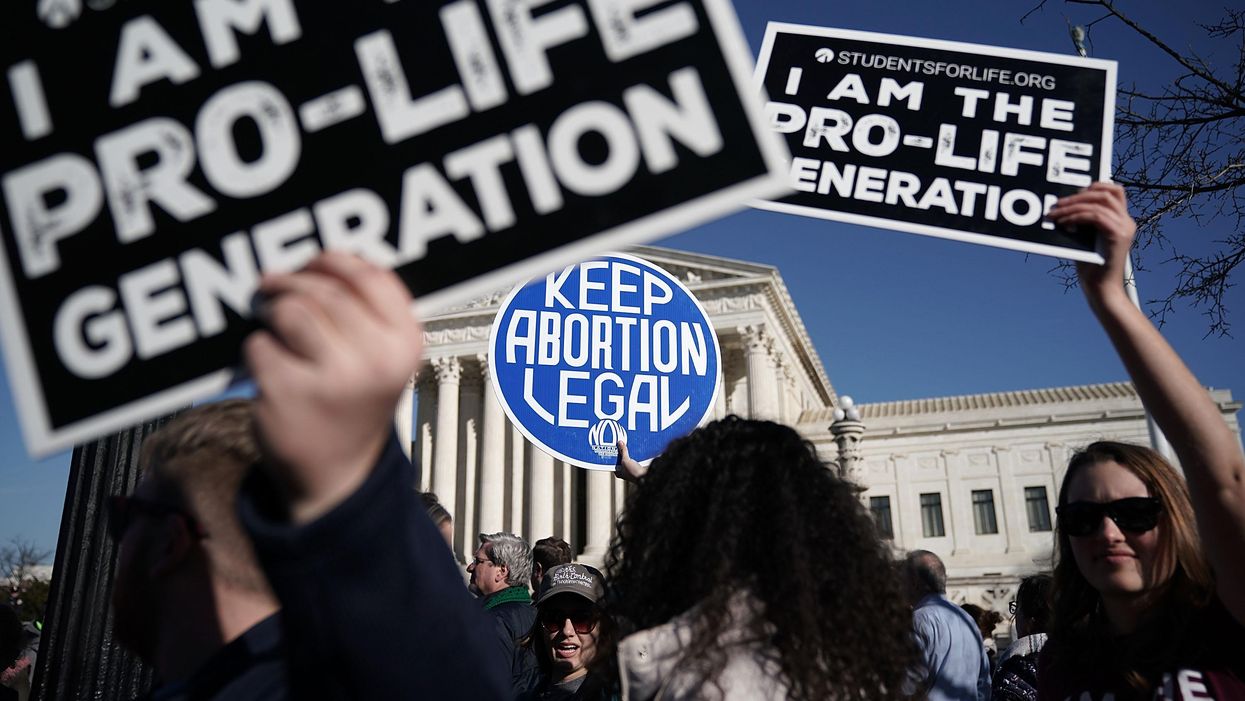Hyten is co-executive director of Essential Partners.
Abortion is one of the most polarized topics in American politics, yet we know that most Americans hold nuanced, complex, sometimes contradictory perspectives on abortion. A recent Pew study found that many supporters of abortion access are open to some restrictions, while many opponents say it should be available in some circumstances.
It is a peculiar irony that the complexity of those views also creates the circumstances for our national polarization. In their everyday lives, people have had vanishingly few opportunities to talk about abortion. It is often taboo or else people find it too difficult to articulate their views —and they choose silence.
This reticence has allowed the most extreme voices to dominate this discussion in the media, in our politics and in our communities. As a result, few if any political leaders express the views of the people they represent. Polarization is anathema to a functioning democracy.
Since the Supreme Court handed down a decision that effectively reversed Roe v. Wade, one polarized national conversation has turned into 50 distinct deliberations unique to the history, context and communities within each state.
As you navigate conversations about this topic in the coming months — whether in direct response to the Supreme Court draft decision or not — it is essential to honor both the complexity and the urgency around this conversation. It is also vital to the future of our nation that we empower the voices of everyday people, so they are able to clearly articulate and advocate for their views.
The organization that I lead, Essential Partners, was founded 30 years ago out of the need for better public discussions about divisive topics like abortion. In 1994, following the murder of two women’s clinic workers by an anti-abortion activist, our founders spent more than five years leading confidential dialogues between pro-life and pro-choice leaders in greater Boston.
"The most important thing I learned from the dialogue,” said Nicki Nichols Gamble, who was then the president and CEO of Planned Parenthood League of MA, “is that there is no more fundamental or profound responsibility for a leader than to understand the differences of opinions around you."
It is now more urgent than ever that our leaders understand the differences of opinions around them. But that can't happen as long as we are trapped in a public debate that is dominated by extreme voices. Now is the moment to break out of that old, dysfunctional, polarized pattern.
Drawing from our work on these conversations over the past three decades, I want to share three recommendations to help you have a healthier, more open, more nuanced conversation with someone who may have a different perspective.
Reflect on your own views
Make sure you understand yourself and what you want to share. Before a conversation about abortion, take a few moments to reflect on your own values. Think about a personal experience that shaped your view. Think about a person in your life who influenced your perspective. Consider taking notes if it helps you focus or remember what’s most important to you.
Make your purpose clear
Hard conversations often implode because people enter them with different purposes. One person is curious; the other person is trying to win. So before you dive in, make sure everyone has the same goal. It can be as simple as saying, “I’m not here to try to change your mind, shame you or scold you. I want to understand you and be understood. How does that sound?” You’ll be amazed at what can happen with a shared purpose.
Embrace the personal
Abortion is already personal. Embrace that fact in these hard conversations. When you talk about your views, speak only for yourself — not on behalf of all women, or all Christians or all liberals. Talk about me, my, and I, rather than you, we, and everyone. Talk about an experience that shaped your values rather than an argument in favor of your view (or against another view). Make yourself known in the way you wish to be known.
Private conversations have a profound influence on the public discussions of issues like abortion. When Americans fail to talk about important political questions, we cede the conversation to hard-line, divisive stances. We erase the diversity of thought that allows our democracy to thrive.
In the wake of this ruling, we have a choice. Whether we fall further into political polarization and dysfunction will depend on the conversations we are willing to have today.



















Trump & Hegseth gave Mark Kelly a huge 2028 gift